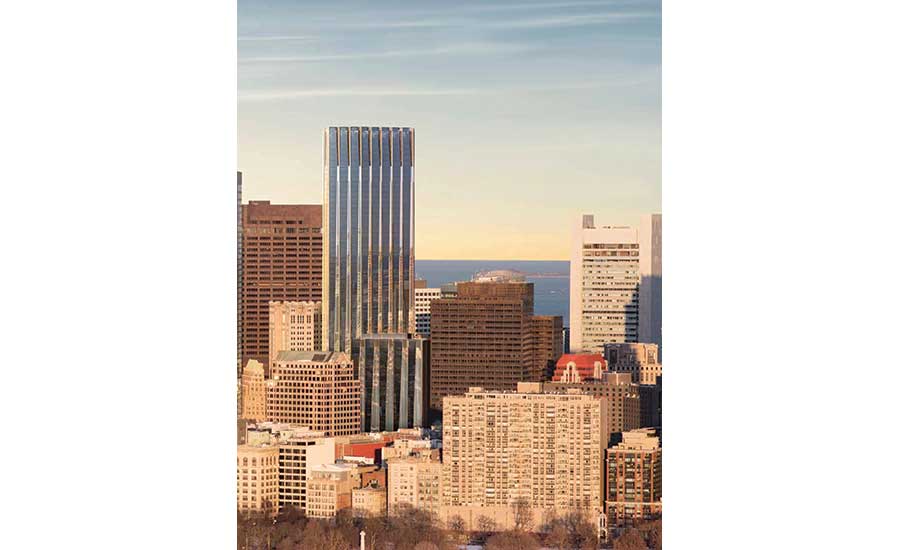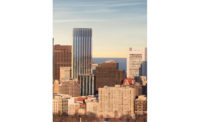Massachusetts lawmakers delayed a vote to relax a 20-year-old state law restricting tall buildings from casting shadows on the Boston Common and Public Garden.
During a June 27 hearing, Massachusetts Secretary of State William Galvin—who oversees the Massachusetts Historic Commission—asked legislators to delay the vote by two weeks so his office can study the legislation. “This significant legislation would repeal existing statutory protections for some of our most historic buildings and parklands,” Galvin wrote to the chairmen of the committee considering the bill.
The bill would make way for the proposed 775-ft-tall Winthrop Square tower. Last month, state and city officials reached a tentative agreement to allow developer Millennium Partners to build the billion-dollar tower on the site of a city-owned parking garage. The deal would help fund the 7-acre Rose Fitzgerald Kennedy Greenway, which is on state land created by the Big Dig. The deal would earmark $5 million to maintain the Greenway from the $153 million Millennium Partners is paying for the dilapidated garage.
But after only receiving Millennium’s shadow study four days before the hearing, Galvin wrote, “even a cursory review makes it clear that there are many approximations and disclaimers in the study. I believe we owe it to the people of Massachusetts to be diligent in seeking an independent review of these important questions.”
Millennium Partners did not comment before ENR’s deadline.
The Friends of the Public Garden also takes issue with Millennium’s shadow study and says its own study also includes existing building shadows. Leslie Singleton Adam, the group’s board chair, testified that they are “hesitant to take a formal position on the bill” since they are in discussions with the city and Millennium Partners on a “mutually beneficial agreement that will protect our cherished downtown parks.”
The bill originated as a home-rule petition drafted by Boston Mayor Marty Walsh and approved by the City Council in April. According to the petition, the city would collect $12 million in annual tax payments from the deal and will benefit from neighborhood housing and jobs trusts. The deal also includes building affordable housing units in Chinatown, public-realm improvements in the Financial District and thousands of new construction and permanent jobs.
While the bill would allow Winthrop Square to cast previously unlawful shadows, it would prohibit future buildings from doing so.
Adam testified that her group has “strong reservations about a one-time amendment to laws that have worked to protect our parks while allowing development to continue in downtown Boston.” She says they will “oppose any further encroachment of shadows on the city’s landmark parks.”






Post a comment to this article
Report Abusive Comment